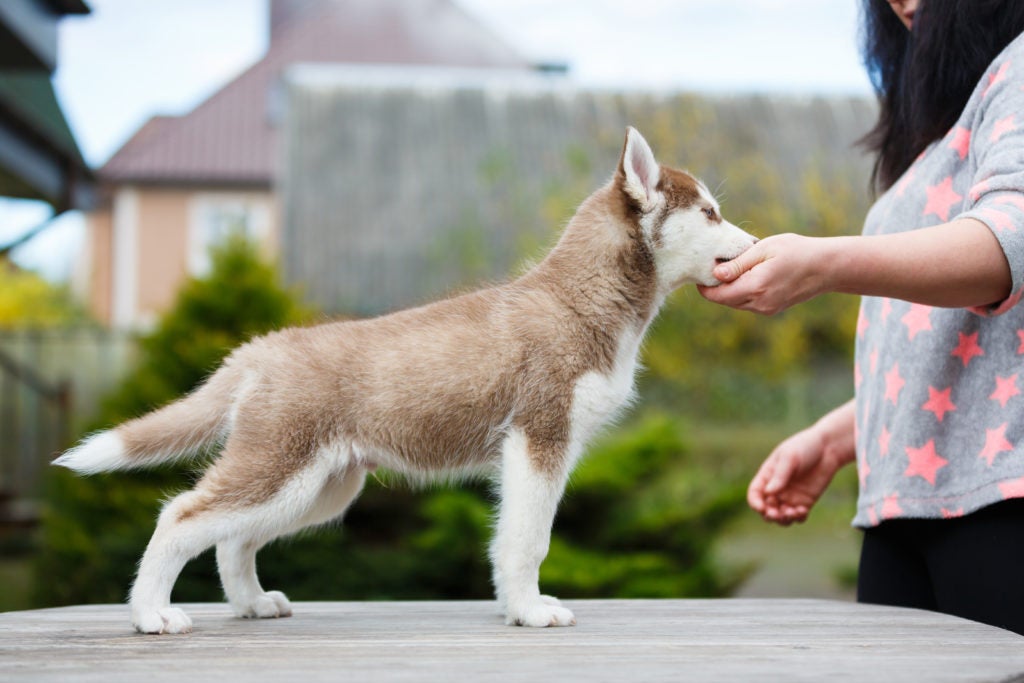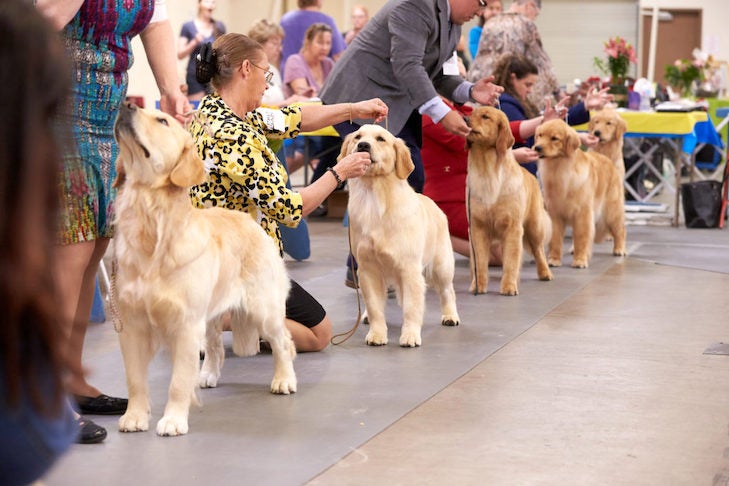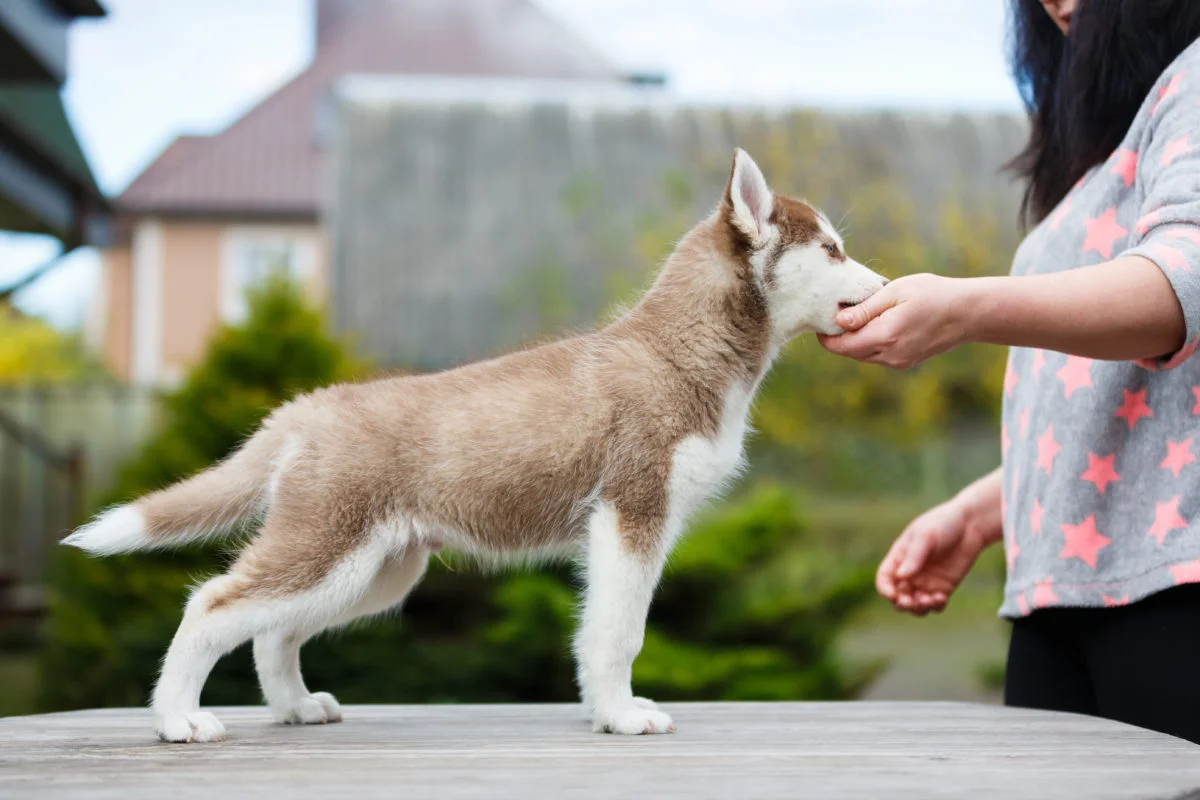It’s at the top of every breeder’s wish list: the once-clueless “pet person” who is now willing – even eager – to show their promising new puppy.
Many of these converts to the dog-show world are made thanks to the guidance of their breeders. After all, the world of purebred dogs can be as intimidating as it is enticing, and there’s nothing more reassuring than having the person who brought your puppy into the world be your reliable mentor.
But today, as time and resources grow ever scarcer, many breeders simply can’t accompany their puppy people on every step of their dog-show journey, despite their best intentions – and that’s perfectly OK. Just as our technology-suffused world has overloaded our schedules, it has also neutralized the limitations of geography, and now there are plenty of ways – including email, texts, video conferencing and social media – for you to stay in touch. If you can’t physically be there while your puppy people cruise along on their learning curve, encouraging them to check in with you provides a valuable connection through which you can offer guidance and input.
One Size Doesn’t Fit All
When you rear a litter of puppies, it soon becomes obvious that each one has his own unique personality: No breed is cookie cutter, and neither are the people who are drawn to it. Some owners immediately embrace the idea of showing their puppy themselves; others would rather walk the plank than take their dog into the ring. Financial circumstances also run the gamut: Some owners are be relieved to know that they can hire a professional handler to finish their dog’s championship; others might relish the challenge of doing it themselves.
There’s only one way to find out what your puppy person’s perspective is, and that is to talk to them. Talk a lot. Describe what dog showing entails, from training to practicing to actually slapping on an armband and making it “official.” Demystify the math: Many novices have no idea the costs involved in entering a dog show. Explain that there are many avenues of participation for every budget, interest level and personality. If you’ve placed your puppy with a family, try to get a sense of whether the youngsters want to be involved as well. Older children or teens might be candidates for Junior Showmanship competition; younger family members might enjoy participating in a Pee Wee competition.
The bottom line is that asking and then listening to what your puppy people’s expectations and comfort level are is infinitely better than just guessing. Remember too that many puppy owners are justifiably proud of their new affiliation with their breeder, and do not want to disappoint. But eventually, they will not be motivated to honor commitments that conflict with their lifestyle. Better to avoid misunderstandings by communicating as much as possible up front to crystallize everyone’s expectations.
Go High (Or At Least Medium) Tech
Decades ago, newcomers would have had to purchase a book to learn the ins and outs of the sport of dogs. But now that hard-earned knowledge is available for the asking on informational sites from around the world (including, of course, this one).
Consider starting a private Facebook group for your puppy buyers who are interested in conformation or other dog sports. There you can post helpful links (remember, there is a YouTube video for everything – “Creating Perfect Free Stacks,” anyone?) Encourage your puppy people to share photos or videos of their dog so you can offer your opinion on everything from the dog’s weight and conditioning to how that perfect stack is coming along.
 Private social-media pages are also a good place to share information about common pitfalls, such as breaching the unspoken etiquette at dog shows. Many new owners have a level of enthusiasm that’s inversely proportionate to their knowledge of what goes on at shows. As a result, they can unintentionally distract or unnerve fellow competitors. Gently suggest that they become aware of blocking gate entrances, and of how sudden movements and loud noises can disturb or even distress nearby dogs. And of course, explain that dog shows are not play-dates, and they should never allow their dog to run up to, sniff, stare down or otherwise engage another dog.
Private social-media pages are also a good place to share information about common pitfalls, such as breaching the unspoken etiquette at dog shows. Many new owners have a level of enthusiasm that’s inversely proportionate to their knowledge of what goes on at shows. As a result, they can unintentionally distract or unnerve fellow competitors. Gently suggest that they become aware of blocking gate entrances, and of how sudden movements and loud noises can disturb or even distress nearby dogs. And of course, explain that dog shows are not play-dates, and they should never allow their dog to run up to, sniff, stare down or otherwise engage another dog.
Not respecting other dogs’ personal space will likely result in some less-than-understanding comments from other exhibitors, who often do not hold back their displeasure. Just one negative interaction can be enough to turn someone off to the sport, so try to avoid the problem entirely by raising consciousness ahead of time.
Going Clubbing
To help build an extended support network, encourage your puppy people to join your breed’s parent club. If your club requires a sponsor, volunteer to be one, and if more than one sponsor is needed, help find that second person as well. If your club produces a breed-specific magazine or newsletter, recommend that your puppy people browse the articles as well as the kennel advertisements, which will give them a sense of “who’s who” in the breed.
Some parent clubs have special programs for newbies. The Leonberger Club of America, for example, has a new-member membership committee; the Rhodesian Ridgeback Club of the United States has a geographically diverse list of breed advisers who volunteer their time to answer questions from newcomers to the breed and the sport. If these resources exist, be sure to point your puppy people to them.
If you have been in a breed for umpteen years, it’s easy to forget just how much there is to learn. While a puppy person’s breeder is usually their primary mentor, encourage yours to cultivate other resources – especially for ringside help and advice for those times when you can’t be there. It really does take a village.
Class Acts
When it comes to the show ring, just how complicated could running a dog around in a circle be? Good handlers, of course, make what they do look deceptively easy. Since your puppy person and the wiggly critter at the end of the lead are both novices, their first stop should be a handling class.
Again, don’t assume that these newcomers will just cruise the internet, find a handling class, and show up ready to shine. Even if you aren’t local, help them locate a nearby class; if you know other breeders or fanciers in the area, ask them for a recommendation. Remember to go through the list of things they will need for class, including bait and an appropriate show lead. And don’t assume they will know even those basics: The bait needs to be extra-yummy and easy to chew (no hard cookies, please) and the lead should be an appropriate one for presenting a show dog.
Another place to point your puppy people is a local kennel club; not only do all-breed clubs usually offer handling classes, but many are actively seeking new members. By attending club meetings and volunteering at events, your puppy people will expand their dog-show network. Someone who doesn’t own the same breed as you can still provide valuable insight, especially since it comes from a different vantage point.
Competing in a Match Show
Once your newly minted dog-show addicts have gotten their feet wet at handling class, it’s time to put what they’ve learned to the test. One great place to get experience and feedback are match shows. Though these low-key, informal competitions don’t count for “real” points, your puppy people will perform the same patterns and routines that they would at an “official” show.
Show your puppy people how to find sanctioned AKC match shows on akc.org. East Coasters might also consider a subscription to the Match Show Bulletin, which also provides listings of handling classes, health clinics, and CGC tests, among other special events.
Try a Puppy Competition
For another low-pressure showing experience, suggest your new owners try the 4-6 Month Puppy Competition, where puppies that are still too young to compete for points can get some ring experience. Wins earned in this special competition count toward the AKC’s Puppy of Achievement certificate. And if they segue into formal competition with their puppy, wins earned up until 12 months of age count, too.
Find a Specialty Show
If you’re an active breeder, chances are you attend your national specialty show. Depending on a breed’s popularity, some nationals can be week-long events, encompassing not just conformation, but often obedience, Rally, agility, breed-specific performance events such as lure-coursing for Sighthounds or field trials for Sporting dogs, and a host of social events, including ice breakers and dinners. It’s a perfect place for newbies to really grasp just how vibrant and varied our purebred-dog culture is.
Encourage your puppy people to look up the national-specialty schedule on the parent-club website. If you have varied obligations during this hectic show time – and most breeders do – be clear about your availability, and set aside a specific time to watch a segment of the show together, so your fledgling fanciers can pick your brain about handling, presenting, grooming and general breed knowledge.

New Exhibitor Tours
While national specialties are a great place for new fanciers to see just how involved and devoted their breed community is, all-breed shows offer newcomers a more universal perspective. Some shows offer a “new exhibitor tour” that provides a great overview of the dog show, as well as the roles of exhibitor and judge. In addition, the American Kennel Club offers a New Exhibitor Mentor program that matches newcomers with experienced fanciers who can explain everything from dog-show jargon to how to fill out an entry form. The resources are there – encourage your puppy people to take advantage of them!
Continue Learning
If there’s one truism in dog shows, as in life, it’s that things are always changing. Keep in touch with your puppy owners and ask them to share how their dog is developing. You know how your line matures, and as a result you can provide suggestions about the best time to show the dog, and when he will be competitive.
Promise your puppy buyers complete candor – and that sometimes means telling them things they might otherwise not be happy to hear. An ugly-duckling puppy can very well transform into a beautiful swan, but the opposite happens, too. Breeders aren’t issued crystal balls, and it’s quite possible that a once-promising show prospect fizzles out with time.
It might be disappointing to give the pursuit of fancy rosettes and win shots on a podium, but remind your puppy people to put things in perspective: Their dog is still the lovable, valued family member they took home as a roly-poly puppy. And conformation is only one of many activities they can enjoy together: Even if you aren’t actively involved in competitions such as, say, agility or flyball, you can still guide new owners to people who are. The goal, as with anything with our dogs, is to have fun and continue building that lifelong bond.
